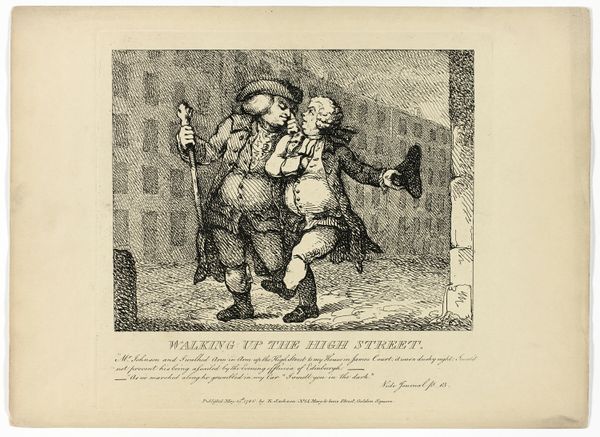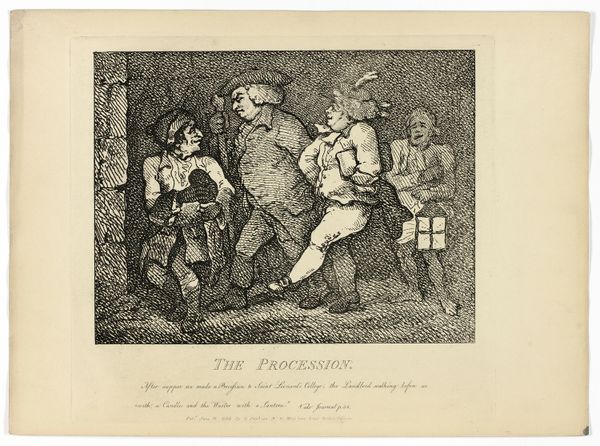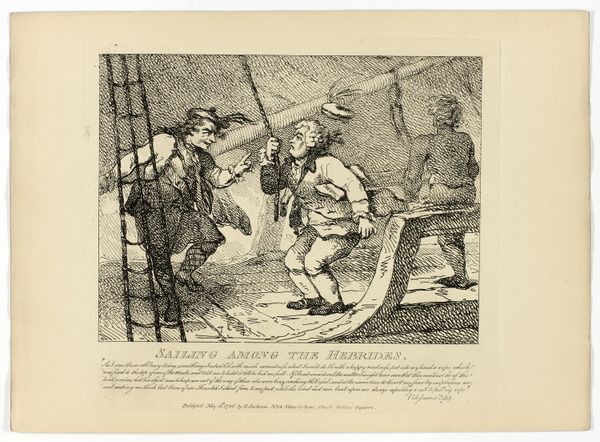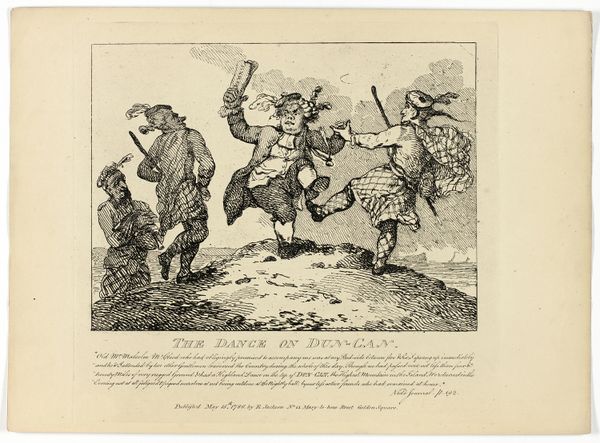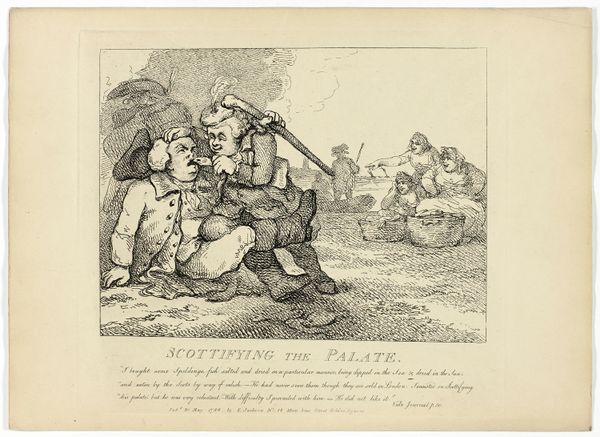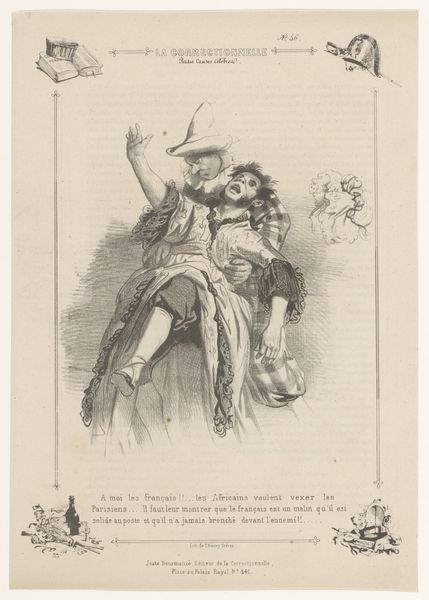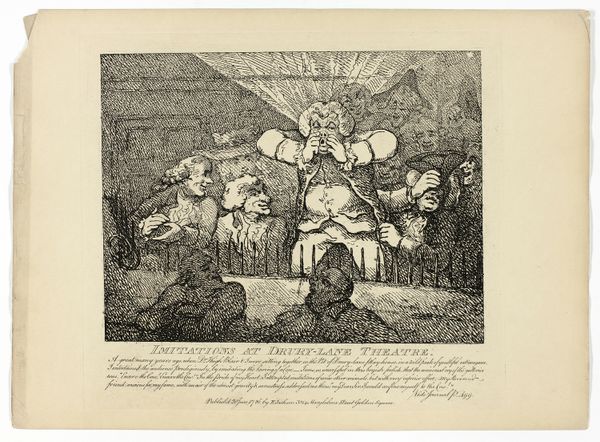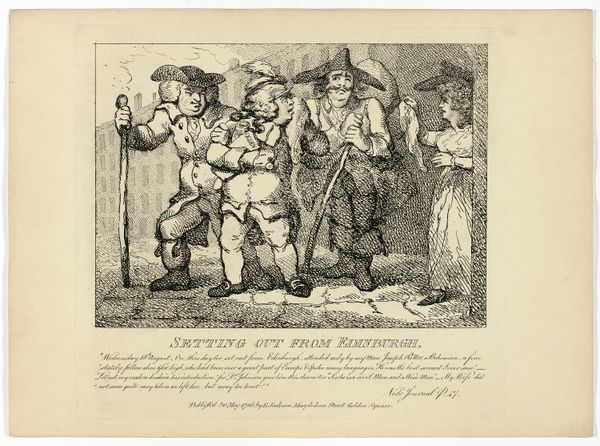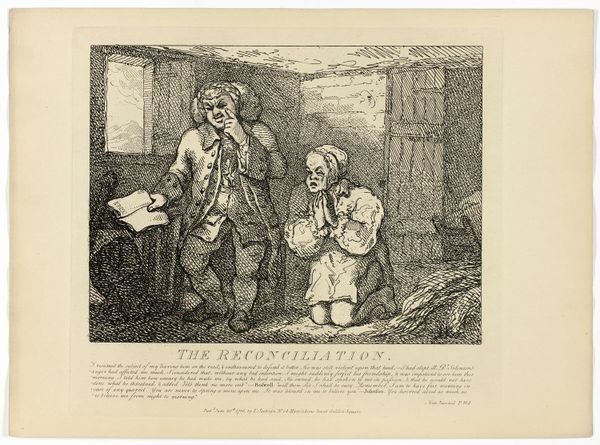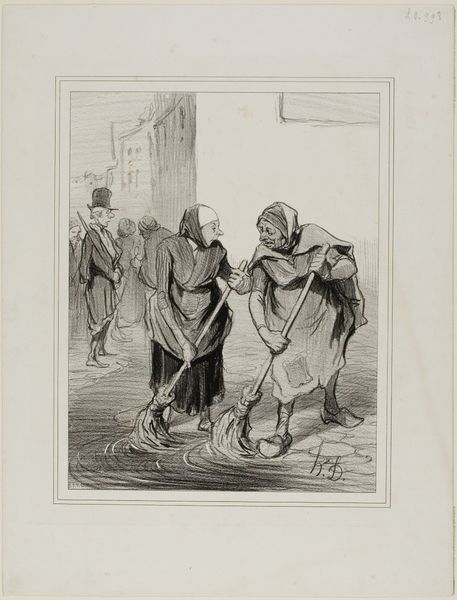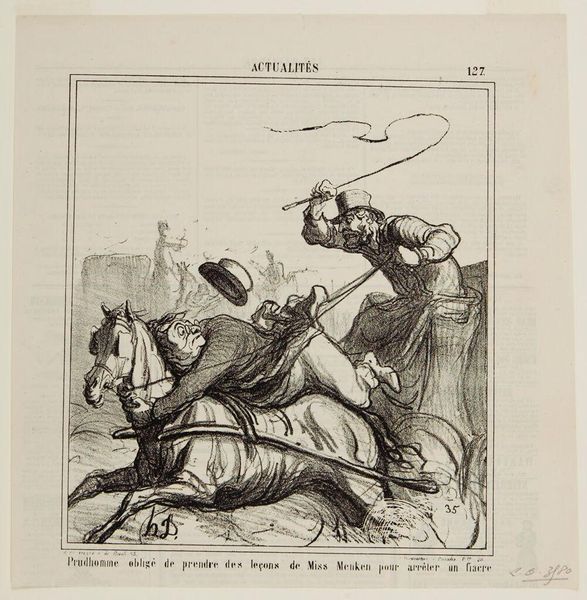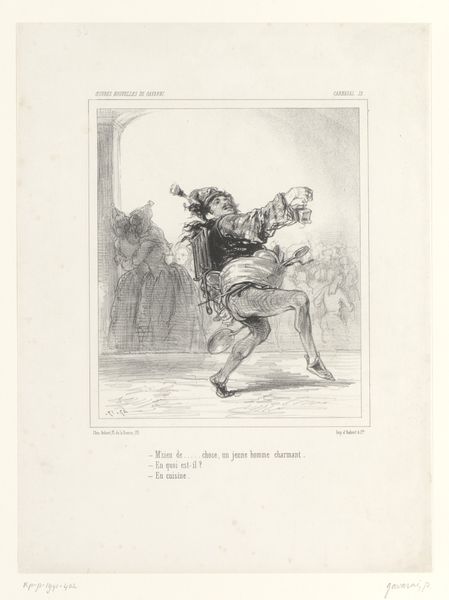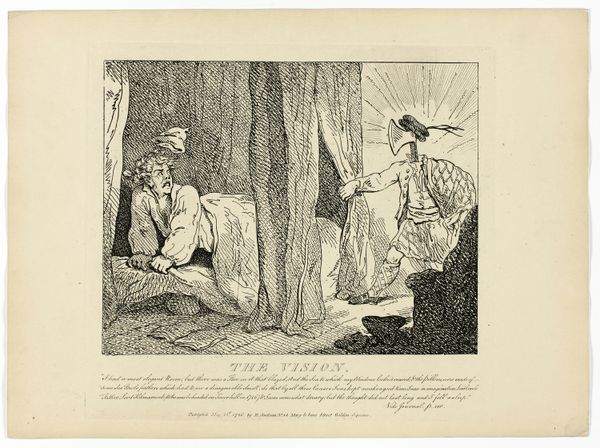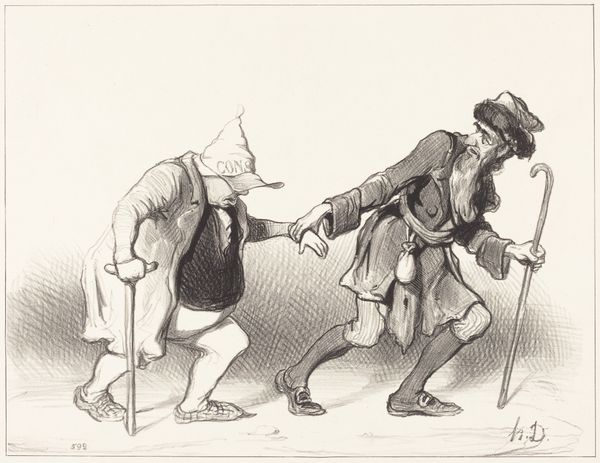
The Embrace, from Boswell's Tour of the Hebrides 1786
0:00
0:00
drawing, print, etching, paper
#
drawing
# print
#
etching
#
caricature
#
paper
#
genre-painting
#
history-painting
Dimensions: 275 × 380 mm (sheet)
Copyright: Public Domain
Curator: "The Embrace, from Boswell's Tour of the Hebrides" is a fascinating print and etching by Thomas Rowlandson, created in 1786. It's currently held at the Art Institute of Chicago. Editor: Well, my immediate impression is... awkward. The figures are almost comically stout, and the central embrace feels less affectionate and more like a collision. The lines of the etching, while precise, contribute to a somewhat chaotic feel. Curator: It’s crucial to consider the historical context. Rowlandson was known for his caricatures and social commentaries. The print refers specifically to James Boswell’s journey to the Hebrides with Samuel Johnson. It portrays a specific encounter. Editor: Aha, so that uneasy feeling makes more sense. I'm looking at the figure on the left, away from the embrace, the almost disgusted expression feels staged and pointed. Curator: The figures are a critique on the English perception of Scottish society. The 'embrace,' is used as a symbol of Johnson's sometimes begrudging acceptance of Scottish culture, which many Englishmen saw as somewhat barbaric. The symbolism underscores power dynamics between the English and the Scottish at the time. Editor: So it’s about control as much as affection. Johnson is the English hat coming to "Embrace" an entirely different kind of people and setting. A stage is being set here with very specific actors on it. What appears to be merely an embrace is more akin to a statement of power. Curator: Precisely! Rowlandson often used exaggeration to critique the social and political norms. The "embrace," isn't meant to be seen as sincere. Editor: Knowing that enriches the image immensely. The symbolic intent shines through the medium. It's incredible how social and cultural tensions of the period can be visually encoded and expressed. It reminds us that how one is perceived can be as easily embraced as caricatured. Curator: Absolutely, Rowlandson's works show art to be both reflective of its historical context and a tool for shaping public perception of specific populations, groups, and encounters.
Comments
No comments
Be the first to comment and join the conversation on the ultimate creative platform.
